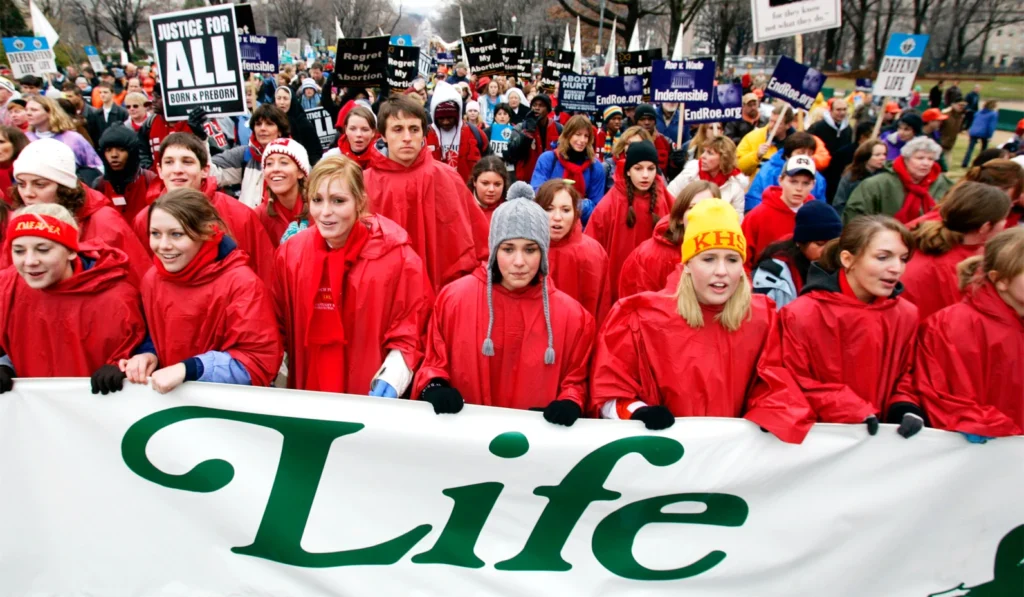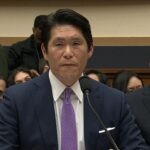
Published January 20, 2023
On January 22, 1974, about 20,000 Americans took to the streets of Washington, D.C., to protest what had happened exactly one year earlier in Roe v. Wade. The leaders who planned the first March for Life imagined it as a one-time event, believing at the time that the Supreme Court would soon recognize its error and reverse course.
As it turns out, it took nearly half a century for the Court to correct the anti-constitutional travesty of Roe. Today marks the first March for Life in history to take place in a post-Roe America. Yet even as they celebrate that major victory — even with their ability to enact laws protecting unborn children from abortion restored — pro-life Americans still flock to D.C. to march. Why?
It has become common in pro-life circles since last summer’s Dobbs decision to hear that the end of Roe was not the end of the abortion debate. Instead, it marked something of a second beginning, a new phase in the fight requiring perhaps more of us, even, than the previous phase did.
For the past 50 years, most legal efforts to stop abortion were total failures, always butting up against the cement wall of Roe (and, later, Casey). In this new legal landscape, it makes great sense that pro-lifers, revitalized by both the possibility of preventing abortion and the challenge of building a pro-life culture, still refuse to stay home.
For one thing, we ought to recognize the advantage accorded to the abortion-rights movement by its 50 years of legal dominance. The pro-life movement is entering the free-for-all left by Dobbs with one hand tied behind its back, forced to make the case for life to a culture well accustomed to the case for death.
The notion of abortion as a woman’s birthright has come to dominate the public imagination, and the end of Roe did little to change that. Ostensibly pro-life politicians endeavor to talk about the issue as little as possible. Pro-life Americans struggle to rebut the claim that women need abortion in order to be equal to men. Planned Parenthood’s ubiquitous, bubble-gum-pink branding has convinced two generations that abortion is one health-care procedure among many, that an annual half a billion dollars in taxpayer funding is the least the organization deserves for doing so much to help women.
These challenges are hardly insurmountable, but they require at a minimum that pro-life Americans and their representatives refrain from considering abortion policy merely a matter for states to sort out among themselves. Such a position risks the very real possibility that, absent drastic shifts in public opinion, there will always be at least a handful of large states permitting abortion on demand throughout all nine months of pregnancy and welcoming women from out-of-state to use these “services.” It also would ignore that the abortion industry is undertaking a nationwide effort to remove all safety protocols for chemical-abortion drugs, making them available over the counter and via mail.
Changes to state law, while important, are neither the beginning nor the end of this story. It will take a combination of federal and state law, administrative policy, and significant cultural change to stop the advance of the pro-abortion machine, which has hardly stumbled in the wake of Dobbs. The pro-life movement is facing not a series of discrete skirmishes but total war on all fronts, and there is little time to waste.
At such a moment, as pro-life factions articulate disparate visions for the best path forward, we need the March for Life, which has always been an emblem of the movement’s enduring unity, more than ever. Out of a great diversity of beliefs and opinions comes a startling moment of clarity, as Americans arrive in Washington to say once more: Our country, our families, our women, and our children deserve better than the violence of abortion.
Alexandra Desanctis is a fellow at the Ethics and Public Policy Center and a contributing writer at National Review.
EPPC Fellow Alexandra DeSanctis writes on culture and family issues, with a particular focus on abortion policy and pro-life advocacy, as a member of the Life and Family Initiative.












